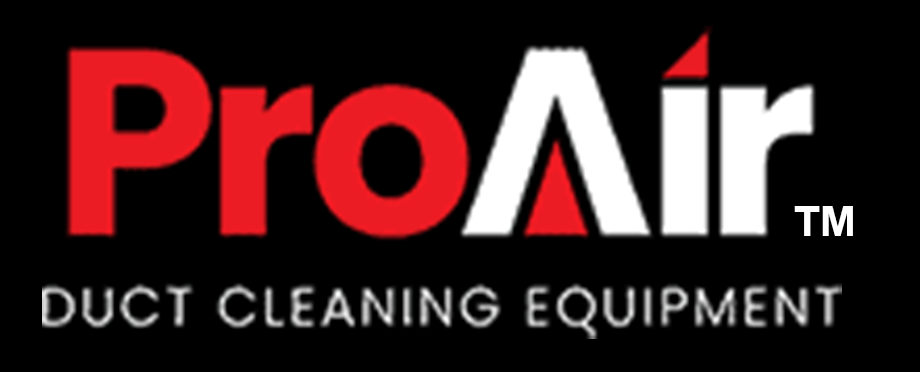Cleaning the air duct of your HVAC system is a way to keep the air quality good. How do you clean the ductwork thoroughly? It is important to use the right cleaning equipment for your air duct. Duct cleaning with HEPA filters gives you the best outcomes. You can also use Proair duct cleaning equipment, which is efficient at removing the ductwork.
Understanding HEPA Filters
High-efficiency particulate arrestance filters are designed to remove almost 99.97% of pollen, dust, bacteria, and other airborne particles. These innovatively designed filters can trap smaller (almost 0.3 microns) and larger particles to make the air germ-free.
HEPA filters are of 2 types. Pre-filters can capture larger dust particles and prevent them from entering the actual filter. On the contrary, post-filters are best for trapping smaller dirt particles that may penetrate both protective layers. Various sizes of contaminants in the air are stuck in the filter, and your indoor air becomes free from dirt. This is how HEPA filters ensure airborne contaminant reduction.
Benefits of HEPA Air Filtration in Duct Cleaning
HEPA air filtration is not just about cleaning the air. It helps you create a healthier and safer environment for your family members. You will be safe from health issues like watery eyes, stuffy noses, and sneezes.
HEPA filters prevent these symptoms because they filter out allergens and ensure Indoor air quality improvement. These are some benefits of HEPA filtration for your air duct.
Moreover, HEPA filters are highly efficient at removing inorganic dust and microscopic organisms that are detrimental to your health. While other filters have a flat fiberglass, HEPA uses thick, pleated material as the media. That is why HEPA filter efficiency is higher than other ordinary filters.
HEPA Filtration Techniques in Duct Cleaning
Point-of-contact ductwork cleaning with HEPA filters is the most effective and safest solution. In this cleaning process, you need to use an agitation device and a compact HEPA-filtered vacuum to clean the ducts simultaneously. Portable vacuum cleaners designed with HEPA technology can trap contaminants from the air at a high velocity. So, they can reduce the risk of cross-contamination. So, you can choose duct cleaning equipment that involves using HEPA filters.
The Impact on HVAC System Performance
With the use of HEPA filtration technology, you can improve HVAC system performance. The filter plays an important role in reducing energy consumption and carbon footprint.
Air ducts are the pathways that distribute the cool air throughout your indoor space. But, these ducts gather allergens, dust, and contaminants that degrade air quality.
When ducts get blocked with dirt, it prevents smooth airflow. It forces your HVAC units to work harder to keep the temperature low. Cleaner ducts ensure proper airflow and minimize strain on the unit. So, your HVAC systems will become more energy efficient if the air duct is clean. You can use HEPA filters to eliminate these pollutants and benefit from HVAC efficiency enhancement.
Choosing the Best HEPA Air Filtration System
Choosing the right HEPA system is important for achieving the desired results. Not every HEPA vacuum cleaner has been designed equally. Buying a sealed system is a good decision. If the air leaks around the filters or dust bag, the HEPA filter cannot provide the best result.
You should also know the way to use the HEPA air filtration of the highest grade. H13 HEPA grade is intended to remove almost 99.95% of particles (with a diameter of around 0.2 microns) from the air. On the other hand, H14 HEPA grade can remove almost 99.995% of air particles. HEPA filter sizing considerations are also important when you buy the HEPA air filter.
Best Practices in HEPA Air Filtration Technology
There are different mechanisms used by High-efficiency particulate air filters to provide clean indoor air solutions. Inertial impaction is a mechanism to filter out larger air particles (of around 1.0 μm particles). If the particle’s size is 0.3 μm to 1 μm, it enters the interception section to get filtered out. Another important mechanism is the Brownian movement which deals with the erratic and random movement of tiny particles.
Case Studies and Success Stories about HEPA Filters
Customer experiences with HEPA filters show the technology has helped efficiently with Indoor air purification. Many consumers have maintained Air quality control in HVAC systems with the use of HEP technology. They have used the technology for removing contaminants from vents and HVAC equipment.
Comparing HEPA Filtration to Other Methods
Comparing HEPA to UV-C and electrostatic filtration is important for identifying the best technology. The healthcare sector should not use UVC air purifiers because they cannot catch all harmful pollutants. Besides, they are responsible for producing pollutants. On the other hand, you will find no adverse environmental impact of HEPA filtration. The HEP air filter is also good for air purification and infection control.
Furthermore, HEPA filters can remove 99.97% of dust particles. But, in case of electrostatic filtration, it is only 97%. Thus, HEPA technology is better and more efficient than other filtration methods.
Future Trends and Innovations
Due to the rising concerns about environmental issues, sustainability has become the most crucial factor for modern filtration technology. Using HEPA technology for indoor health is the latest trend. Consumers prefer using recyclable filters and more energy-efficient processes. HEPA technology is the result of air filtration advancements. There is a growing trend of HEPA filter installation for allergen reduction in ducts and other purposes.
According to a study, the international HEPA filter market will reach almost $4.7 billion by 2028. People have become more aware of air quality standards and regulations. That is why they consider using modern duct cleaning techniques like HEPA.
Conclusion
Most professional cleaners want to implement sustainable duct cleaning practices that do not affect the environment. They recommend creating a HEPA filter replacement schedule for consistent HEPA filter maintenance. You can speak to these professionals to get HEPA filter brand recommendations. However, you should consider HEPA filter compatibility with your system to get the desired result.

